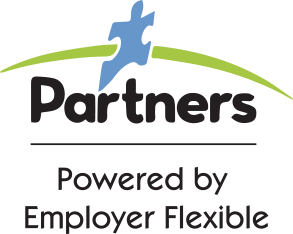Improve Workplace Culture to Combat Resignation, Boost Productivity
Improve Workplace Culture to Combat Resignation, Boost Productivity

Nearly two years of a global pandemic has wrought economic and emotional turmoil on the average employee, but businesses that focus on improving their workplace culture can counter “The Great Resignation” while boosting overall productivity.
“Corporate culture may be the most important aspect of employee satisfaction. A strong corporate culture can be the differentiator in helping a company barely survive to actively thrive, especially in challenging times.” Matthew Rolnick, vice president of sales at Yaymaker, wrote in Forbes.
And these have been some of the most challenging times for managers in memory with an average of four million Americans resigning each month last year in what has been called “The Great Resignation”.
“The last few years have thrown some major curveballs in the general direction of people management. The Great Resignation has people resigning from their jobs in droves,” Carrie Bender, director of people and culture at Strategic Security Solutions, wrote in HR Executive.
Each resignation is costly to a business with a Gallup Workplace survey finding that it costs anywhere from 50 percent to 200 percent of an employee’s annual salary to replace them.
Company Culture Important for Hiring and Retention
According to a 2019 study from Glassdoor, 77 percent of surveyed job seekers would consider the company’s culture before even applying, and 56 percent said company culture is more important than salary when it comes to job satisfaction.
“Having a compelling mission, culture and values are critical when it comes to attracting and retaining top talent in a competitive job market — it is what differentiates each and every employer,” said Christian Sutherland-Wong, Glassdoor President and COO. “Across the countries we surveyed, it’s clear that job seekers are seeking more meaningful workplace experiences. Job seekers want to be paid fairly but they too want to work for a company whose values align with their own and whose mission they can fully get behind.”
Glassdoor Economic Research also published a report on the leading drivers of employee satisfaction across five countries: U.S., UK, France, Germany, and Canada. According to millions of reviews shared voluntarily and anonymously by employees on Glassdoor, across four of the five countries studied, the culture and values of an organization are the strongest predictors of employee satisfaction, followed by quality senior leadership and career opportunities.
“A common misperception among many employers today is that pay and work-life balance are among the top factors driving employee satisfaction,” said Dr. Andrew Chamberlain, Glassdoor Chief Economist. “We find little support for this notion in Glassdoor data. Instead, employers looking to boost recruiting and retention efforts should prioritize building strong company culture and value systems, amplifying the quality and visibility of their senior leadership teams and offering clear, exciting career opportunities to employees.”
Creating Positive Workplace Culture Boost Productivity
The Harvard Business Review found a strong link between a positive and healthy workplace culture and improved employee engagement and productivity.
“A positive work climate also leads to a positive workplace culture which, again, boosts commitment, engagement, and performance. Happier employees make for not only a more congenial workplace but for improved customer service. As a consequence, a happy and caring culture at work not only improves employee well-being and productivity but also improves client health outcomes and satisfaction,” wrote Emma Seppälä and Kim Cameron.
The authors found six characteristics of a positive workplace culture:
- Caring for, being interested in, and maintaining responsibility for colleagues as friends
- Providing support for one another, including offering kindness and compassion when others are struggling
- Avoiding blame and forgive mistakes
- Inspiring one another at work
- Emphasizing the meaningfulness of the work
- Treating one another with respect, gratitude, trust, and integrity
How to create these characteristics at work? The authors suggested that managers:
- Help employees foster positive social connections at work
- Show empathy and compassion to employees
- Enhance employee loyalty and commitment by going out of the way to help them
- Seek feedback and encourage two-way communication in the workplace
“Now, more than ever, employers must encourage and enable regular and frequent conversations to set and clarify expectations, provide feedback and ensure the entire employee base is successful,” said Bender.
Get Creative to Improve Workplace Culture
Peter Corless, executive vice president of enterprise development at HCM software company OnShift, says that not only do companies need to understand what employees value in the workplace but they then need to act on that information.
“It’s imperative that we get creative with retention strategies and cater to the needs and wants of today’s workforce,” wrote Corless in HR Executive.
Corless also suggests businesses can improve their workplace experience by:
- Consider Flexible Work Schedules: “Having schedules that cater to the employee first–whether it’s a salaried worker whose position now allows them to work fully or partially remote or an hourly worker who has more control of their schedule–is a non-negotiable for current employees and candidates,” wrote Corless.
- Develop Career Paths and Structured Growth Opportunities: Millennial and Gen Z are most likely to resign and are eager to work at companies where they have professional development opportunities. Corless: “A key retention strategy should include developing clear career paths and mentorship programs. This not only helps your organization remain competitive to job seekers but also allows for succession plans for aging leadership.”
- Implement Thoughtful Employee Rewards and Recognition: Offer fair and unbiased rewards and recognition programs that encourage “a job well done”. Instead of traditional “Employee of the Month” contests, which can be biased, focus on milestones, anniversaries and achievements, such as accident-free workdays. Corless reminds that rewards programs do not have to include costly baubles, but sometimes a heartfelt email from a boss along with a gift card can be the right move.
- Prioritize and Amplify Mental Health and Employee and Employee Assistance Programs: These programs are more important than ever considering the emotional strain of the pandemic. Offering the programs is a necessary first-step with companies actively encouraging employees to take advantage of them.
Contact Partners today to find out how we can help your business enhance its workplace culture. You know how it important it is. Let us help you now.



